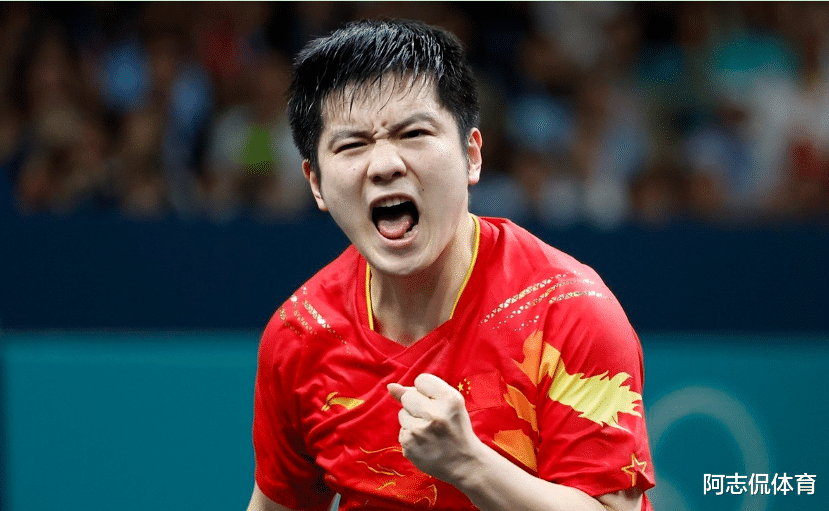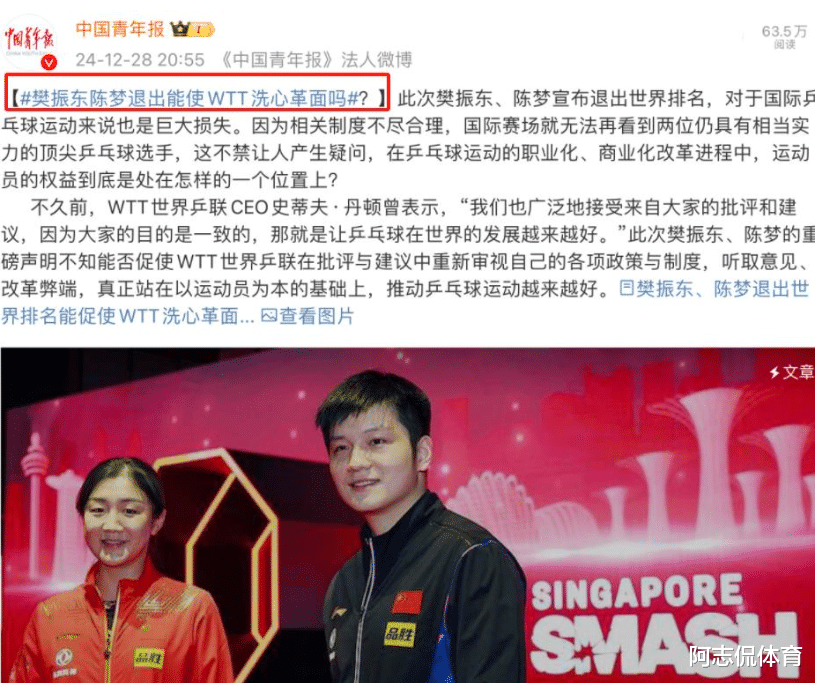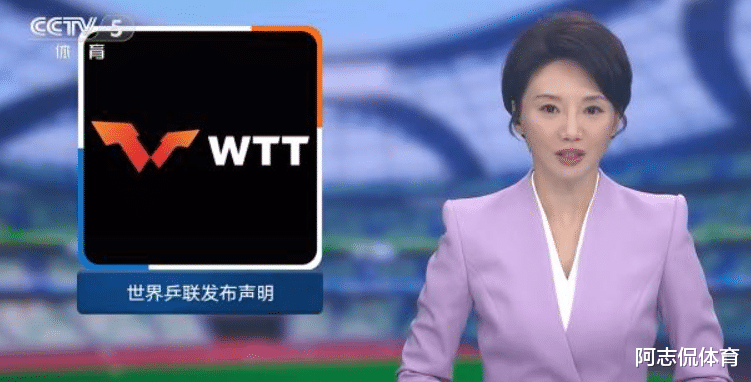Fan Zhendong's conflict with the World Table Tennis (WTT) has escalated, with the player who once defended the honor of the national table tennis team at the Paris Olympics now trapped by WTT rules, forced to withdraw from world rankings, causing regret and pity. The truth behind Fan Zhendong's withdrawal has been exposed, with the main reason being that he faces fines for not participating in competitions, a demand he cannot afford.

Some fans believe this decision to withdraw was a momentary impulse from Fan Zhendong, but it was actually a well-considered choice. After all, world ranking is crucial for athletes, representing their strength and necessary for participating in future competitions. At 27, still in his prime, making such a decision shows how excessive WTT's demands are.

Following Fan Zhendong's public statement, several table tennis players, including African champion Aruna and the French Lebrun brothers, also voiced support for Fan Zhendong. Especially Aruna, who faced the loss of a loved one and could not withdraw from the competition without facing a 1,000fine.EvenifArunacontinuedplaying,itwouldbedifficulttoearn1,000 in prize money, making this a harsh requirement for ordinary athletes.

In response to widespread discussion, WTT addressed the issue of Fan Zhendong and Chen Meng's withdrawal late at night, stating that the rules have been in place for four years and were not specifically targeted at them. However, Fan Zhendong confronted the World Table Tennis Federation, exposing their lie by saying he was not previously informed about fines for withdrawal. He only received official notice last week and immediately signed and submitted the documents on Monday, leaving no room for WTT to save face.

Fan Zhendong's direct confrontation with WTT is to defend the rights of athletes. In response, CCTV News conducted an eight-minute commentary on the "Oriental Horizon" program on CCTV13 channel on December 29, believing that the new WTT regulations are controversial and that events should center around athletes. The CCTV reporter thinks that WTT undoubtedly wants to avoid commercial damage caused by top players' temporary withdrawals through these penalty measures.

However, for these accomplished athletes, long-term schedules require recovery time. CCTV believes that the profitability of commercial matches depends on the excitement of the event itself, and the core of exciting events are the athletes. Taking a step back, even if athletes are exhausted from constant travel, their participation in competitions generally affects the commercial value and attention of the matches.

CCTV also stood up to support Fan Zhendong, Chen Meng, and other players, while also exposing WTT's income, which is as high as 60 million, a huge figure. No wonder WTT is so strict about deducting points and imposing fines for withdrawals, as there are significant financial interests at stake. However, despite this, it is unclear whose pockets the massive profits of WTT are going into, and the core players of this sport have not enjoyed corresponding benefits, which is worth investigating thoroughly.